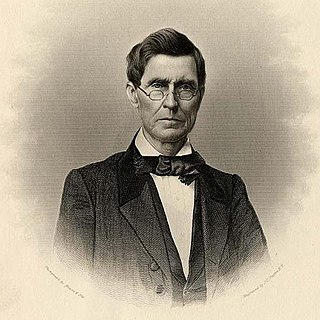A Quote by Matthew Henry
Christ died. He left a will in which He gave His soul to His Father, His body to Joseph of Arimathea, His clothes to the soldiers, and His mother to John. But to His disciples, who had left all to follow Him, He left not silver or gold, but something far better-His PEACE!
Related Quotes
When Christ was about to leave the world, He made His will. His soul He committed to His father; His body He bequeathed to Joseph to be decently interred; His clothes fell to the soldiers; His mother He left to the care of John; but what should He leave to His poor disciples that had left all for Him? Silver and gold He had none; but He left them that which was infinitely better, His peace.
It is God's earth out of which man is taken. From it he has his body. His body belongs to his essential being. Man's body is not his prison, his shell his exterior, but man himself. Man does not "have" a body; he does not "have" a soul; rather he "is" body and soul. Man in the beginning is really his body. He is one. He is his body, as Christ is completely his body, as the Church is the body of Christ
The master in the art of living makes little distinction between his work and his play, his labor and his leisure, his mind and his body, his information and his recreation, his love and his religion. He hardly knows which is which. He simply pursues his vision of excellence at whatever he does, leaving others to decide whether he is working or playing. To him he's always doing both.
The day after his father left, Franz and his mother went into town together, and as they left home Franz noticed that her shoes did not match. He was in a quandary: he wanted to point out the mistake, but was afraid he would hurt her. So, during the two hours they spent walking through the city together he kept his eyes focused on her feet. It was then he had his first inkling of what it means to suffer.
My father died and left me his blessing and his business. His blessing brought no money into my pocket, and as to his business, it soon deserted me, for I was busy writing poetry, and could not attend to law, and my clients, though they had great respect for my talents, had no faith in a poetical attorney.
Some souls think that the Holy Spirit is very far away, far, far, up above. Actually he is, we might say, the divine Person who is most closely present to the creature. He accompanies him everywhere. He penetrates him with himself. He calls him, he protects him. He makes of him his living temple. He defends him. He helps him. He guards him from all his enemies. He is closer to him than his own soul. All the good a soul accomplishes, it carries out under his inspiration, in his light, by his grace and his help.
The believer is sensible of his infirmities, for it is supposed that he is wrestling under them. He sees, he feels, that he is not man enough for his work; that his own hands are not sufficient for him, nor his own back for his burden; this is what drives him out of himself to the grace that is in Christ Jesus. And thus he lies open to the help of the Spirit, while proud nature in unbelievers is left helpless.
And still Meriadoc the hobbit stood there blinking through his tears, and no one spoke to him, indeed none seemed to heed him. He brushed away the tears, and stooped to pick up the green shield that Eowyn had given him, and he slung it at his back. Then he looked for his sword that he had let fall; for even as he struck his blow his arm was numbed, and now he could only use his left hand.
Strange is the vigour in a brave man's soul. The strength of his spirit and his irresistible power, the greatness of his heart and the height of his condition, his mighty confidence and contempt of danger, his true security and repose in himself, his liberty to dare and do what he pleaseth, his alacrity in the midst of fears, his invincible temper, are advantages which make him master of fortune.





































